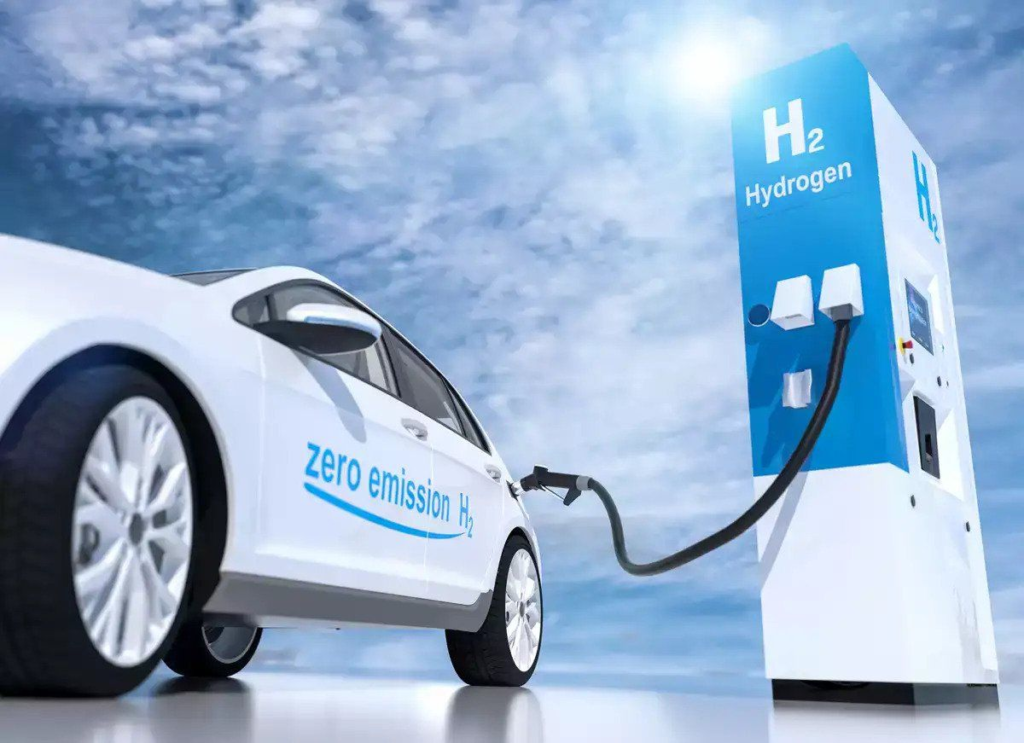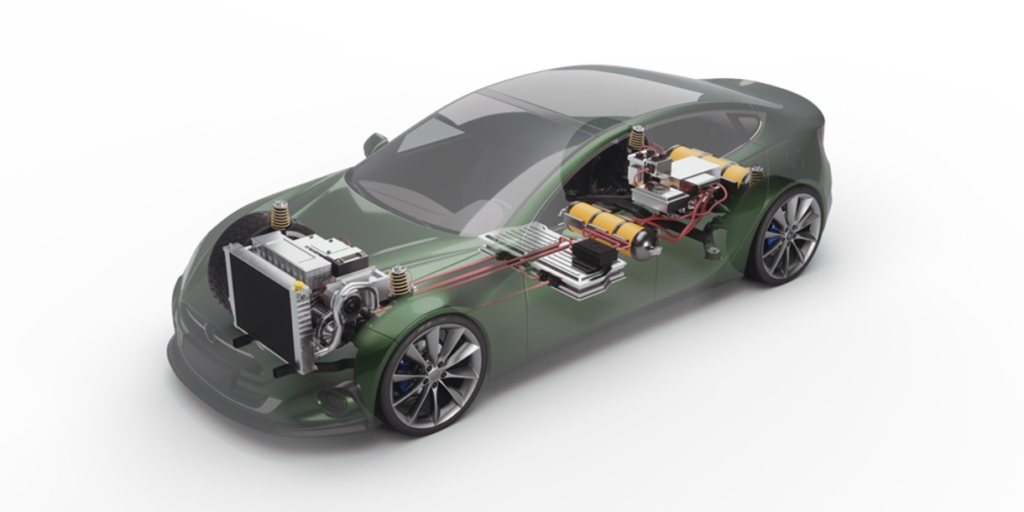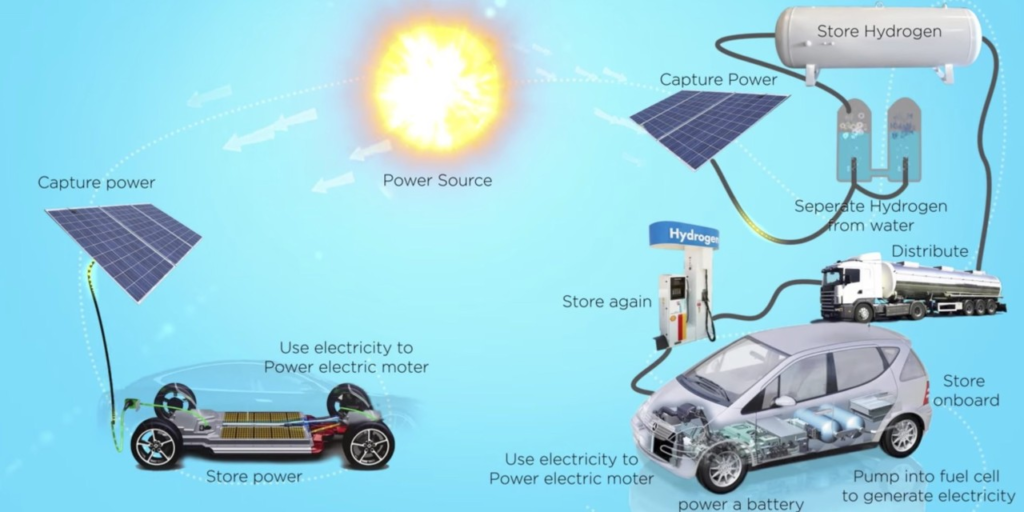
Introduction to Fuel Cell EV Technology
The automotive world is on the brink of a revolution. As we move deeper into 2024, Fuel Cell EVs are emerging as one of the most exciting advancements in green technology. These vehicles utilize hydrogen to produce electricity, offering an eco-friendly alternative to traditional electric cars powered by batteries. Imagine driving a car that emits only water vapor while delivering impressive range and performance—this is not just a dream but a reality with fuel cell technology.
As consumers become increasingly aware of environmental issues, interest in sustainable transportation continues to grow. Automakers are responding by investing heavily in hydrogen cars, showcasing innovative designs and cutting-edge features that blend sustainability with style. If you’re curious about what’s coming next in this dynamic landscape, let’s explore the top models making waves this year!
Advantages of Fuel Cell EVs
Fuel Cell EVs offer remarkable efficiency. They convert hydrogen into electricity, providing a clean energy source for driving.
One significant advantage is the quick refueling time. Unlike battery electric vehicles that can take hours to charge, filling up a fuel cell vehicle takes just minutes. This convenience makes them more user-friendly for daily commutes and long journeys.
Additionally, these vehicles produce zero tailpipe emissions, contributing positively to air quality. Their only byproduct is water vapor—an impressive feat in an era of climate change awareness.
Fuel Cell EVs also have longer ranges compared to traditional electric vehicles. Many models can travel over 300 miles on a single tank of hydrogen, making them suitable for various driving needs.
Furthermore, advancements in hydrogen production are underway. As green technology evolves, so too does the potential for cleaner and more sustainable methods of sourcing this crucial element.

The Top Fuel Cell EV Models to Watch for in 2024
As we look towards 2024, several fuel cell EVs stand out in the automotive landscape. These hydrogen-powered vehicles are redefining eco-friendly transportation and pushing the boundaries of green technology.
First up is the Toyota Mirai. Known for its sleek design and impressive range, it continues to lead in the market for hydrogen cars.
Next is the Hyundai Nexo, boasting advanced safety features and a spacious interior. This model balances performance with sustainability seamlessly.
The Honda Clarity Fuel Cell also deserves attention. Its reliability and efficiency make it a strong contender among electric vehicles.
Mercedes-Benz enters this arena with their GLC F-Cell, combining luxury with innovative technology—a true testament to automotive innovations today.
Audi’s A7 H-Tron Quattro showcases style along with an efficient driving experience that enthusiasts will appreciate. Each of these models brings unique benefits worth exploring further as we venture into a more sustainable future.
A. Toyota Mirai
The Toyota Mirai stands out as a pioneer in the realm of Fuel Cell EVs. With its sleek design and cutting-edge technology, it embodies the future of sustainable transportation.
Fueled by hydrogen, the Mirai produces only water vapor as a byproduct, making it an eco-friendly choice for environmentally conscious drivers. The driving experience is smooth and quiet, reminiscent of traditional electric vehicles but distinctively advanced.
Inside, the cabin boasts modern features with ample room and comfort. High-tech infotainment systems keep you connected on your journeys.
Toyota’s commitment to safety is evident through various driver-assist technologies incorporated into this model. This not only enhances peace of mind but also elevates the overall driving experience.
As we look toward 2024, the Mirai continues to gain attention as one of the top models in green technology innovation. Its blend of style and sustainability makes it a compelling option for those exploring hydrogen cars.
B. Hyundai Nexo
The Hyundai Nexo stands out as a pioneering model in the realm of fuel cell EVs. It seamlessly blends advanced technology with eco-friendly driving, making it an exciting option for 2024.
Equipped with a hydrogen fuel cell system, the Nexo offers impressive range and performance. You can expect about 380 miles on a single tank, which is competitive within its class. This means fewer stops at refueling stations and more time enjoying the road.
Inside, you’ll find a spacious cabin filled with modern features. The infotainment system is user-friendly and keeps drivers connected while emphasizing safety through numerous driver-assistance technologies.
With zero tailpipe emissions, the Nexo is not just about cutting-edge automotive innovations; it’s also a step toward sustainable transportation. As cities push for greener options, this vehicle positions itself as an ideal choice among hydrogen cars for those looking to make an eco-conscious statement in 2024.
C. Honda Clarity Fuel Cell
The Honda Clarity Fuel Cell stands out as a remarkable entry in the hydrogen cars category. With its sleek design, it captures the eye while embodying cutting-edge green technology.
This eco-friendly car offers impressive range and performance. Drivers can expect up to 360 miles on a single tank, making it practical for both daily commutes and longer trips. The acceleration is smooth, offering a driving experience that rivals traditional gasoline vehicles.
Inside, the Clarity is spacious and filled with modern features. A user-friendly infotainment system enhances connectivity on the go. Plus, advanced safety technologies provide peace of mind for drivers and passengers alike.
Honda’s commitment to sustainability shines through in this model’s production processes. As automotive innovations evolve, the Clarity remains an exciting option within sustainable transportation solutions for those eager to embrace fuel cell EVs in 2024.
D. Mercedes-Benz GLC F-Cell
The Mercedes-Benz GLC F-Cell stands out in the realm of fuel cell EVs with its sophisticated design and advanced technology. This innovative vehicle combines both hydrogen fuel cells and a plug-in hybrid system, making it versatile for various driving conditions.
With a sleek exterior that embodies luxury, the GLC F-Cell isn’t just about looks; it’s engineered for performance. The dual powertrain allows for an impressive range on hydrogen alone while offering added flexibility through electric charging.
Inside, drivers enjoy high-end materials and cutting-edge infotainment systems. Comfort is key, providing ample space for passengers along with top-tier safety features.
As automotive innovations continue to evolve, the GLC F-Cell represents a significant step toward sustainable transportation solutions without sacrificing style or performance. Its presence in the market could reshape perceptions around eco-friendly cars as we head into 2024.
E. Audi A7 H-Tron Quattro
The Audi A7 H-Tron Quattro stands out with its sleek design and innovative technology. This luxury hydrogen car merges performance with eco-friendliness, showcasing Audi’s commitment to sustainable transportation.
Under the hood, the A7 H-Tron features a powerful fuel cell system that delivers impressive acceleration. The Quattro all-wheel-drive capability ensures stability in various driving conditions, making it both fun and functional.
Inside, drivers are treated to a high-tech cabin filled with premium materials and advanced infotainment systems. Safety features abound, ensuring peace of mind for every journey.
With its blend of luxury and green technology, the Audi A7 H-Tron appeals to those seeking an upscale yet environmentally conscious vehicle. As one of the top models to watch in 2024, it highlights how automotive innovations can lead us toward a more sustainable future without sacrificing style or comfort.

Comparison of these Models
When comparing the top fuel cell EV models of 2024, several factors come into play. Each vehicle offers unique features tailored to different drivers’ needs.
The Toyota Mirai stands out with its sleek design and impressive range. Its user-friendly tech interface complements an eco-focused driving experience.
Meanwhile, the Hyundai Nexo impresses with cutting-edge safety systems and a spacious interior, making it ideal for families.
On the other hand, Honda’s Clarity Fuel Cell is known for its smooth handling and efficient performance in urban settings.
Mercedes-Benz GLC F-Cell merges luxury with hydrogen technology, catering to those who desire both style and sustainability.
Audi’s A7 H-Tron Quattro combines sporty aesthetics with all-wheel drive capabilities. This model highlights automotive innovation paired with green technology.
Each option showcases advancements in sustainable transportation while offering distinct advantages that cater to diverse preferences among eco-conscious consumers.
Availability and Pricing
Availability of fuel cell EVs is gradually expanding as automakers ramp up production. Some models, like the Toyota Mirai and Hyundai Nexo, are more readily accessible in specific markets, particularly California. As hydrogen infrastructure improves, these cars may become available nationwide.
Pricing varies significantly among different manufacturers. The Toyota Mirai starts at around $50,000 but can be eligible for various incentives that reduce the overall cost. On the other hand, the Hyundai Nexo generally falls within a similar price range.
Keep an eye on leasing options too; they often make these eco-friendly cars more affordable upfront. With growing interest in sustainable transportation solutions, prices might stabilize or decrease as technology advances and competition increases among manufacturers.
Future Outlook for Fuel Cell EV

The future of Fuel Cell EVs is promising and vibrant. As we move toward 2024, the automotive industry is embracing hydrogen technology as a key player in sustainable transportation. Major manufacturers are investing heavily in research and development to enhance fuel cell systems, improve efficiency, and reduce costs.
Innovation is at the forefront of this evolution. The integration of advanced materials and technologies promises lighter components that can deliver better performance while extending vehicle range. Additionally, infrastructure for hydrogen refueling stations continues to expand, making it easier for consumers to adopt these eco-friendly cars.
Government incentives and growing environmental awareness further propel the market forward. Many regions are setting ambitious targets for reducing carbon emissions, creating favorable policies for green technology adoption.
As electric vehicles dominate headlines today, Fuel Cell EVs offer a complementary approach by combining zero-emission driving with faster refueling times similar to traditional gasoline vehicles. This blend of convenience and sustainability positions them well within the evolving landscape of alternative fuel options.
With continued advancements on the horizon, it’s clear that Fuel Cell EVs will play an essential role in shaping our automotive future—one where clean energy meets innovative design for a greener planet ahead.
For more such content, keep visiting QAWire


